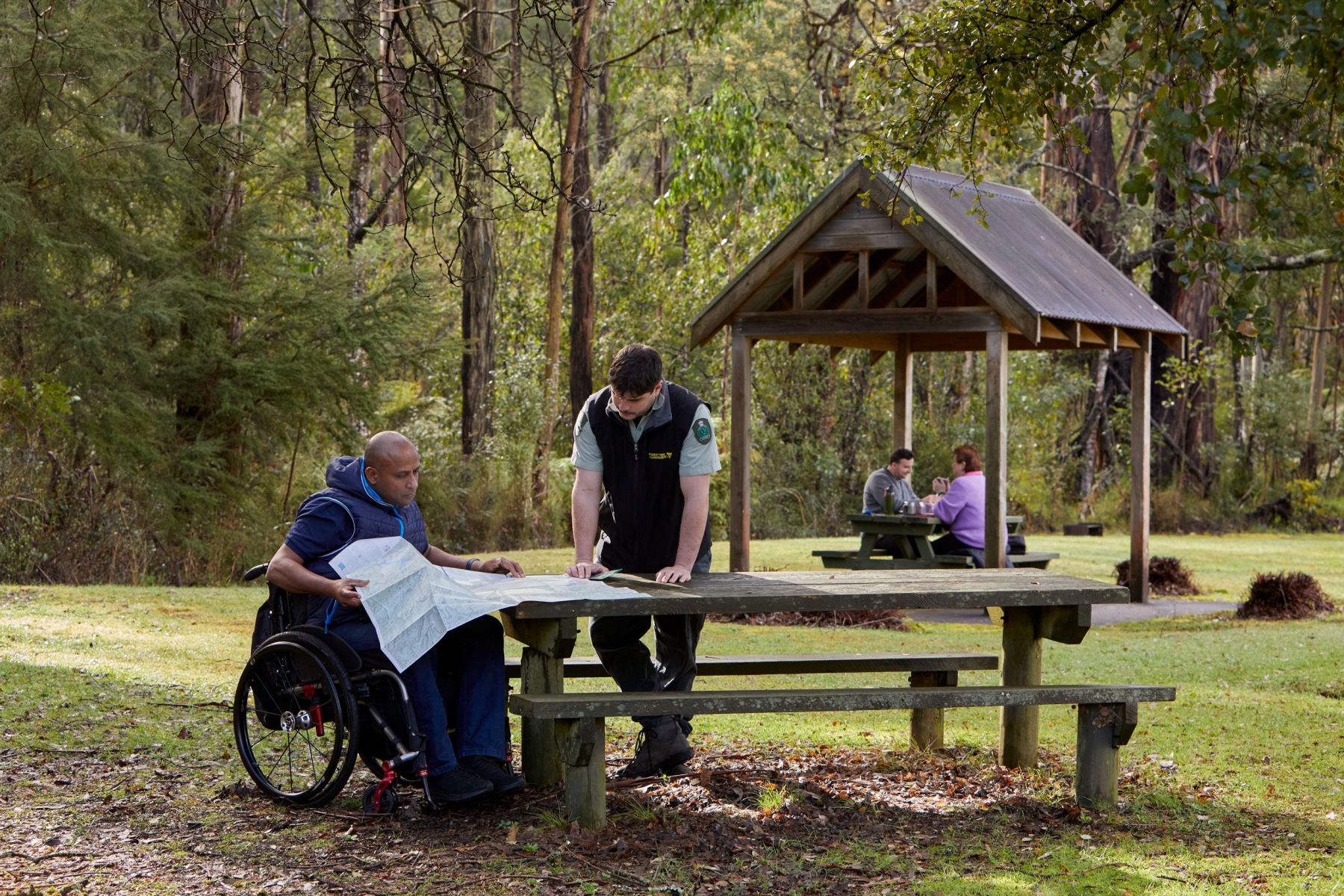On this page:
Some state forests are located close to regional towns, providing easy access to essentials and services, while others are in remote areas where visitors need to come well prepared.
Make sure you're prepared for your next trip by:
- learning about important safety information
- being prepared based on where and when you're planning to travel.

State forests are open to everyone and can be used for a diverse range of activities and outdoor recreation. This includes:
- Camping
- Picnicking
- Walking and hiking
- Four-wheel driving
- Scenic driving
- Mountain biking
- Horse riding
- Paddling (non-motorised water sports)
- Trail bike riding
- Hunting and fishing
- Fossicking
There are hundreds of recreation sites in state forests with basic amenities and formed tracks and trails available to visitors. For a full list of sites and maps, download the More to Explore app.
No fees and no bookings required
All state forest campgrounds are free. If camping in Murrindindi Scenic Reserve, a camping permit needs to be purchased for a small charge.
Campsites cannot be booked in advance and are available on a first-come, first-served basis.
Camping in busy periods
If you are planning to camp during peak visitor periods arrive early and have a backup plan if there are no spots available at your preferred campground.
Peak periods include:
- Summer and Easter holidays
- Public holiday long weekends:
- Labour Day
- Anzac Day
- Melbourne Cup.
Rules in state forests
There are rules that apply when visiting to help protect state forests, yourself and other visitors. This includes rules about:
- when you can have a campfire
- collecting firewood
- recreational activities such as walking a dog, flying drones or riding a horse.
Find out more on the Conservation Regulator website.
Ready to go?
Page last updated: 14/01/25
